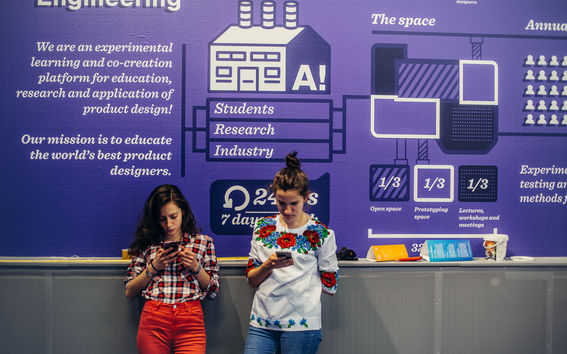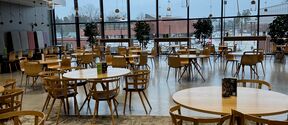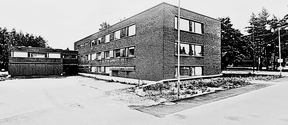Closing the university campus would be the most effective energy action? True or false: eight claims about saving energy

1. Closing the campus and switching to distance learning and remote work would be the best energy saving action, because homes require heating and electricity in any case.
True and false. This claim is partly true if we look at it from only the energy consumption perspective, but false in terms of the wellbeing, collaboration and learning of students and the Aalto community. The pandemic provided us with experience about moving to full distance learning and remote work, and it proved to be a poor option for both individuals and the community. Furthermore, despite possible distance learning and remote work, campus buildings would still require a certain amount of electricity and heating. The intensive remote work period during the pandemic did not decrease the university's need for heat energy, and electrical energy consumption was only about 10% less than normal.
2. Storing Aalto data on servers consumes more energy than all other electricity consumption combined.
False. The energy consumption of the servers used by Aalto corresponds to roughly 7% of total energy consumption. However, this figure does not include the electricity consumption of third parties, such as Microsoft, related to things like server use during Aalto University Teams meetings. In the future, there will be a greater focus on recovering waste heat from Aalto servers: The new buildings in the Aalto Works block will utilise waste heat from Aalto's central servers as heating energy.
3. Lights wear out faster if you constantly switch them on and off.
True and false. Flipping lights on and off does increase wear, but operating hours are the most significant factor – especially for LEDs. It’s a good idea to turn off the lights in an office if you leave for a meeting lasting a couple of hours, but not for a few minutes when you go for coffee.
4. Many lights are energy-efficient LEDs, so turning them off has no real impact.
False. LEDs can consume a significant amount of energy in an office environment, because the university has a lot of lighting. It’s important to keep the big picture in mind. Correct use of energy-efficient lighting is significant when enough people start doing it. For example, the Metro block has a modern lighting system, but it still accounts for about 20% of electricity consumption.
5. Cooler indoor air is healthy for people.
Partly true. Research has shown that sleeping in a cool environment (+18 to +19 degrees) is beneficial for health. Cooler indoor air during freezing weather also reduces the stress caused by low humidity (dry air) for the airways, eyes and skin. In freezing weather, the outdoor air only contains a small amount of water. The relative humidity of the already dry outdoor air decreases as the air warms up, which means that the relative humidity of cooler indoor air is higher.
6. There’s no point in making buildings more airtight, because then they can’t breathe and may become mouldy.
False. The airtightness of structures is a direct prerequisite for energy-efficient controlled ventilation (incoming/outgoing), controlling indoor air conditions, and heat recovery. Uncontrolled air flows through structures are a risk factor in terms of moisture damage, among other things.
7. It’s not worth turning off displays and lights because structural decisions, such as heating and the energy efficiency of buildings, make the real difference.
True and false. The energy efficiency of buildings and improving it are important elements in terms of reducing overall energy use. The more energy-efficient our campus becomes technically, the more effective small energy-saving actions will be. This includes the economical use of displays and lights. The combined effect of small actions has a large impact, and this is particularly important when our electricity grid is being put to the test.
8. Aalto has a lot of unused waste heat, for example, from its research infrastructure.
True. However, we’ve already done a lot of work to utilise the waste heat produced by the research infrastructure, and this work is continuing. Examples of this include the energy solution in the new Aalto Works block and the Väre building’s large geothermal system, which stores waste heat.
Starting from October, the goal of Aalto University is to reduce the total energy consumption by 15 per cent a year, compared to the previous year. Aalto University and Aalto University Campus and Real Estate are a partner of the joint government campaign, Down a Degree, aimed at saving energy.
- Updated:
- Published: This content was originally published on www.aalto.fi.
Read more news

Join us for Demo Day 2026 - March 4 at A Grid
On March 4th, A Grid is the place to be because Aalto Startup Center x A Grid Demo Day will be taking place.
A Bloc becomes a “living lab” for Aalto students: Entrepreneurial Futures course and Cafetoria join forces in pop-up collaboration
A Bloc’s pop-up space turned into a hands-on learning environment when Entrepreneurial Futures course and Cafetoria co-created a pop-up.
Learning Lounge offers more study space on campus
Student, having a hard time finding a space?